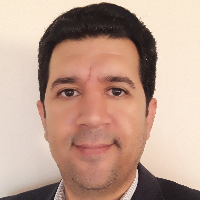Comparison of the role and challenges of non-governmental organizations in exposing corruption cases in Iran and Sweden
disclosure of corruption is one of the important and influential mechanisms in the field of prevention and fight against corruption, which is done individually, in groups or in organizations. Non-governmental organizations are one of the active institutions in the field of exposing corruption, and their activities are gradually expanding. The purpose of the research is to investigate the similarities and differences of the role and challenges of non-governmental organizations in exposing corruption in Iran and Sweden.
To achieve this goal, two organizations from Iran and two organizations from Sweden were studied, and the research was done using the comparative method.
The research findings show the differences and similarities between the roles of the four studied organizations in Iran and Sweden in four roles: 1) exposing corruption, 2) policymaking and legislation, 3) educational and cultural, and 4) consultation and cooperation. In addition, he has classified the challenges of non-governmental organizations of the two countries into three categories: 1) political-administrative challenges, 2) legal-judicial challenges, and 3) cultural-social challenges and compared them with each other. The legal gap, the lack of a positive view on the disclosure of corruption by government officials and the multiplicity of centers influencing the decisions and activities of non-governmental organizations are among the challenges of these organizations in Iran.
-
Analyzing the Challenges and Obstacles to Water Policy Implementation in the Sixth Development Plan
Somaye Aslani, , Hojjat Mianabadi *
Journal of Governance Knowledge, -
Designing a Policy Impact Assessment Model for Higher Education in Iran
Ashraf Nasiriyan *, Saeed Ghiasi Nodooshan, Ali Khorsandi Taskoh, Morteza Taheri,
Iranian Journal of Public Policy,



